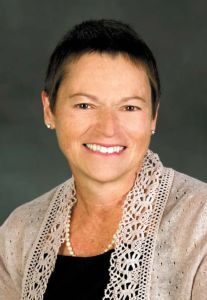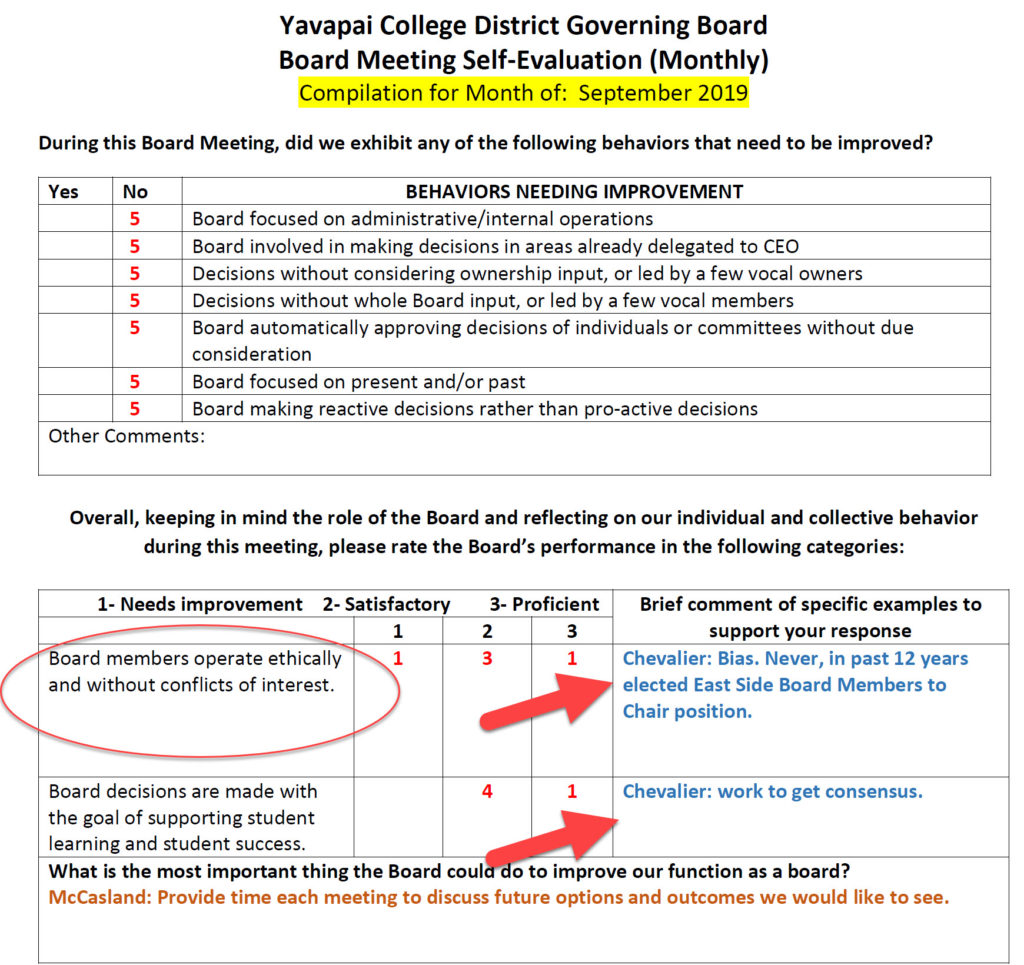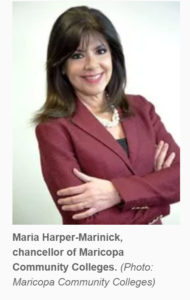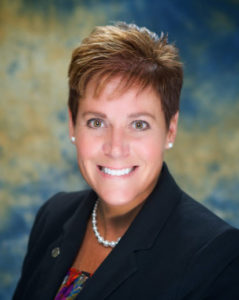Caused Representative Sigafoos to state he would have sued Representative Chevalier for “defamation” except the law doesn’t allow it; both sought the other to apologize; Board in 4-1 vote adopts letter responding to Chevalier’s request for greater transparency
 An open letter to the public in which Third District Representative Paul Chevalier expressed his view that the Community College budgeting process should be more transparent ruffled the feathers of some members of the District Governing Board. The letter, a copy of which was published by this Blog July 21, 2020, caused Governing Board Chair, Deb McCasland to draft a response that was adopted in a 4-1 vote.
An open letter to the public in which Third District Representative Paul Chevalier expressed his view that the Community College budgeting process should be more transparent ruffled the feathers of some members of the District Governing Board. The letter, a copy of which was published by this Blog July 21, 2020, caused Governing Board Chair, Deb McCasland to draft a response that was adopted in a 4-1 vote.
Mr. Chevalier had attempted to share his views on the need for greater transparency in the budget process by reading his letter at the July Governing Board meeting. He was ruled out-of-order. Following the meeting, he released the letter to the public in his individual capacity as a Third District elected represented. It expressed his view that the Community College’s annual budget was not sufficiently transparent to adequately provide the public with information about the College.
During the discussion about the Board’s response to Mr. Chevalier’s letter at the September meeting, Representative Ray Sigafoos said that he was so affronted by the letter as a CPA, that “absent the Supreme Court in New York v. Sullivan, I might have a case to sue for defamation. But we’re all public officials here. I don’t have a case for defamation because I do not have proof, if you will, of actual malice. I have no proof of that but I think that in terms of those two paragraphs I cited, here in this screed, you owe this Board an apology.”
Mr. Chevalier responded to Mr. Sigafoos comments and then asked Mr. Sigafoos to apologize for his comments. It is noted that during Mr. Sigafoos’ comments, Mr. Chevalier had wished Mr. Sigafoos a “happy birthday.” (It was Mr. Sigafoos birthday.)
Representative Pat McCarver said she had never read Mr. Chevalier’s letter but voted in favor of the letter brought to the Board by the Chair anyway. Ms. McCarver indicated that she never has and never will read the Eyeonyavapai College Blog where Mr. Chevalier’s letter first appeared in July.
The back and forth between Board members and Mr. Chevalier about his open letter to the public took about 24 minutes. You can view the entire discussion on the video clip below.
The letter adopted 4-1 by the Board follows below as it appeared in the Agenda for the September 8 Governing Board meeting. There were no amendments to the letter during the meeting prior to the vote.
Item# 2.4
I am writing on behalf of the Yavapai College District Governing Board (DGB) and in response to the Eye on Yavapai posting entitled Third District Representative Paul Chevalier Wants Yavapai College to Produce a More Transparent Budget July 31, 2020. The DGB believes that the community deserves to have complete and accurate information about the College’s budget reporting processes, and as detailed below, we believe that the budget and the process by which it is prepared and approved is transparent.
Let me first address the preparation and approval of the budget. The budget preparation process starts in October each year and ends with the adoption of a budget in May, giving the DGB ample opportunities to ask detailed questions and the public ample opportunities to observe how the budget is prepared. In October, the process begins with a discussion and presentation from the College on revenue assumptions. In November, the College provides information from environmental scanning that may impact budget assumptions and decisions. The DGB holds a more in-depth budget workshop in January, and that is followed by a presentation and discussion regarding capital expenditures in March. After months of discussion and information sharing, the president presents a detailed preliminary budget in April, with opportunity for DGB and community input before the budget is approved in May.
This multiple month process provides the DGB with the information it needs to understand and develop an appropriate budget, and it provides the public with insight and understanding about all of the budget components. The DGB goes well above and beyond the legal requirements of public notification regarding the budget.
Now let me turn to the presentation of information in the College’s budget. The DGB is responsible for governing on behalf of and is accountable to the taxpayers of Yavapai County. As members, we fulfill this accountability by developing policies that govern the operations of the College. All operational decisions are delegated to the president of the College, and the president is then held accountable for the delegated areas through our structured and transparent monitoring process.
It is extremely important that we as DGB members respect and adhere to our delegated structure for a number of reasons, including to maintain good standing with our accreditation body. We also must respect the leadership of our president. We are very proud of what our president, Dr. Rhine, has accomplished in a very short period of time. She came in and listened to our students, staff, faculty, DGB and community. She has taken that information and made significant changes in both operational structure and fiscal management and reporting.
There is truly transparency in her approach and leadership style. Under Dr. Rhine’s leadership the institution has incorporated significant changes in the way the College’s budget is structured and reported. The report now includes budgetary data by department outlining every expenditure, including employee information by classification and information related to our auxiliaries, including the College’s performing arts center (PAC). In addition, the budget classifies expenditures according to the two sides of the county. We asked for these changes, and the president quickly delivered.
As a long term DGB member, I believe that the budget process and the budget reporting structure are thorough, detailed, transparent and effective. It is not about how many pages we have, it is about the consistent transparency, and I want to commend Dr. Rhine for her fiscal responsibility, leadership and business acumen.
 In a January 14 article by Rachel Leingang of the Arizona Republic it was reported that Northern Arizona University President Rita Cheng will personally pay back some of the money highlighted by auditors involving a trip to Russia.
In a January 14 article by Rachel Leingang of the Arizona Republic it was reported that Northern Arizona University President Rita Cheng will personally pay back some of the money highlighted by auditors involving a trip to Russia.  The Maricopa County Community College District has begun a search for a new chancellor after Maria Harper-Marinick resigned in September. It has set up a search committee to help with the selection. In a statement issued by the Board, it said it was “in the search for our next chancellor, we seek an experienced and visionary leader who will build upon our system’s past success and shepherd the colleges toward a future with an abundance of opportunities,”
The Maricopa County Community College District has begun a search for a new chancellor after Maria Harper-Marinick resigned in September. It has set up a search committee to help with the selection. In a statement issued by the Board, it said it was “in the search for our next chancellor, we seek an experienced and visionary leader who will build upon our system’s past success and shepherd the colleges toward a future with an abundance of opportunities,”
 A question was raised about whether current Yavapai Community College Board member Steve Irwin could simultaneously hold the positions of both a County Supervisor and a Yavapai Community College Board member. However, It is clear that under current law he could not hold both positions.
A question was raised about whether current Yavapai Community College Board member Steve Irwin could simultaneously hold the positions of both a County Supervisor and a Yavapai Community College Board member. However, It is clear that under current law he could not hold both positions.  Maricopa County Community College District Chancellor Maria Harper-Marinick has announced that she will leave her position as the head of the largest community college system in Arizona when her contract ends in May.
Maricopa County Community College District Chancellor Maria Harper-Marinick has announced that she will leave her position as the head of the largest community college system in Arizona when her contract ends in May. Yavapai Community College Fifth District Board representative Steve Irwin will be leaving the Governing Board after one term. He has announced that he is running for Yavapai County Board Supervisor for that District. He is already actively campaigning on Facebook (
Yavapai Community College Fifth District Board representative Steve Irwin will be leaving the Governing Board after one term. He has announced that he is running for Yavapai County Board Supervisor for that District. He is already actively campaigning on Facebook ( Community College President Dr. Lisa Rhine explained in a written message to the faculty that she is going to address the culture, health and strategic direction of the College in the coming months. To help her accomplish those objectives, she is searching for a Vice President of Strategic Initiatives. This person will be responsible for improving and enhancing the online experience, improving enrollment management, expanding an Open Education Resources initiative, developing the learning core, and for leading the College’s Organizational Health strategies.
Community College President Dr. Lisa Rhine explained in a written message to the faculty that she is going to address the culture, health and strategic direction of the College in the coming months. To help her accomplish those objectives, she is searching for a Vice President of Strategic Initiatives. This person will be responsible for improving and enhancing the online experience, improving enrollment management, expanding an Open Education Resources initiative, developing the learning core, and for leading the College’s Organizational Health strategies.